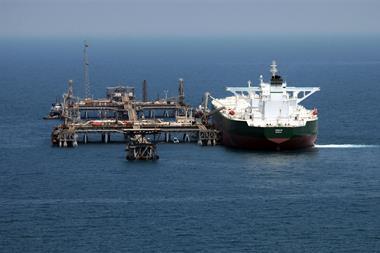Reinsurer offers $2bn capacity but says deep drilling risk management must be improved
In response to the Gulf oil disaster, Munich Re has developed a new concept for insuring offshore oil drilling, which has the potential to create cover in the order of US$ 10–20bn per operation.
“Following the catastrophic oil spill in the Gulf of Mexico, it is clear that better provision has to be made for dealing with losses and damage arising in this context”, said Munich Re in a release.
The cover seeks to protect against liability risks from drilling joint ventures such as, death or injury, property damage, environmental impairment and financial losses in the event of an accident.
Currently, there is no separate cover for drilling operations, which are insured under the individual liability policies of the companies concerned.
As a rule, covers are available subject to a limit of $ 1–1.5bn on the international insurance market. With Munich Re’s new concept, each individual drilling operation will be covered by a policy specifically developed for that risk.
As a result, Munich Re thinks it should be possible to increase liability limits to $10–20bn per drilling operation. Munich Re would be prepared to offer coverage capacity in the order of $2bn.
Munich Re Board member Torsten Jeworrek is convinced there will be demand for this type of cover. “If coverages are available, companies will buy them because inability to pay high compensation claims can lead to insolvency, and mere speculation about such an eventuality can hit their share price.” Substantial capacity can be offered only if a very large number of drilling operations are insured, since it will not be possible to provide the necessary capacity at affordable prices unless sufficient wells are insured. This could be achieved either through a voluntary commitment on the part of the oil companies or by introducing some form of compulsory insurance in the licensing procedure.
Based on the US Oil Pollution Act, cover would largely relate to clean-up and removal costs, impairment of natural resources and property damage, as well as loss of earnings in sectors such as fishing or tourism.
Munich Re considers the tightening of safety standards crucial to the concept. To ensure such standards were met, companies would have to monitor and oversee the risk management from the start of a project to its completion.
“More stringent risk management standards of this type ought to be an integral part of the procedure for granting drilling licences,” said the reinsurer.
With the increasing scarcity of fossil fuels and growing demand for energy, exploratory drilling is now worthwhile deep below the earth’s surface, and often far below sea level. Drilling is therefore becoming more complex and, increasingly, remedying the damage is not something that can be done quickly.
Jeworrek added: “We have to ensure that claims are met and the environment restored to its original state as far as possible. Our concept creates an additional safety net.”
In its current form, the new concept is designed to cover drilling operations in the USA, drilling start-ups averaged 300 a year in the Gulf of Mexico alone in recent years. However, suitably adapted, Munich Re believes it could also be used elsewhere.
Jeworrek concluded: “We stand by our commitment to the development of renewable energy. In the meantime, better risk management and financial protection are needed in the field of fossil fuel generation.”
Munich Re also had this to say about the January 2011 renewals
Munich Re expects stable prices and conditions for its portfolio in the upcoming property-casualty reinsurance renewals. Currently, there is sufficient capacity in all lines of business. Rates have improved significantly in lines of business hit by heavy losses, such as offshore energy and in the case of natural catastrophe covers in Latin America. Jeworrek: “The very heavy losses caused by the earthquake in Chile have shown how important it is to ask a price commensurate with the risk, even in years where losses are relatively light.†Munich Re will strictly adhere to this line. “Our financial strength is our most important asset. Growth without profitability is out of the question.â€



















